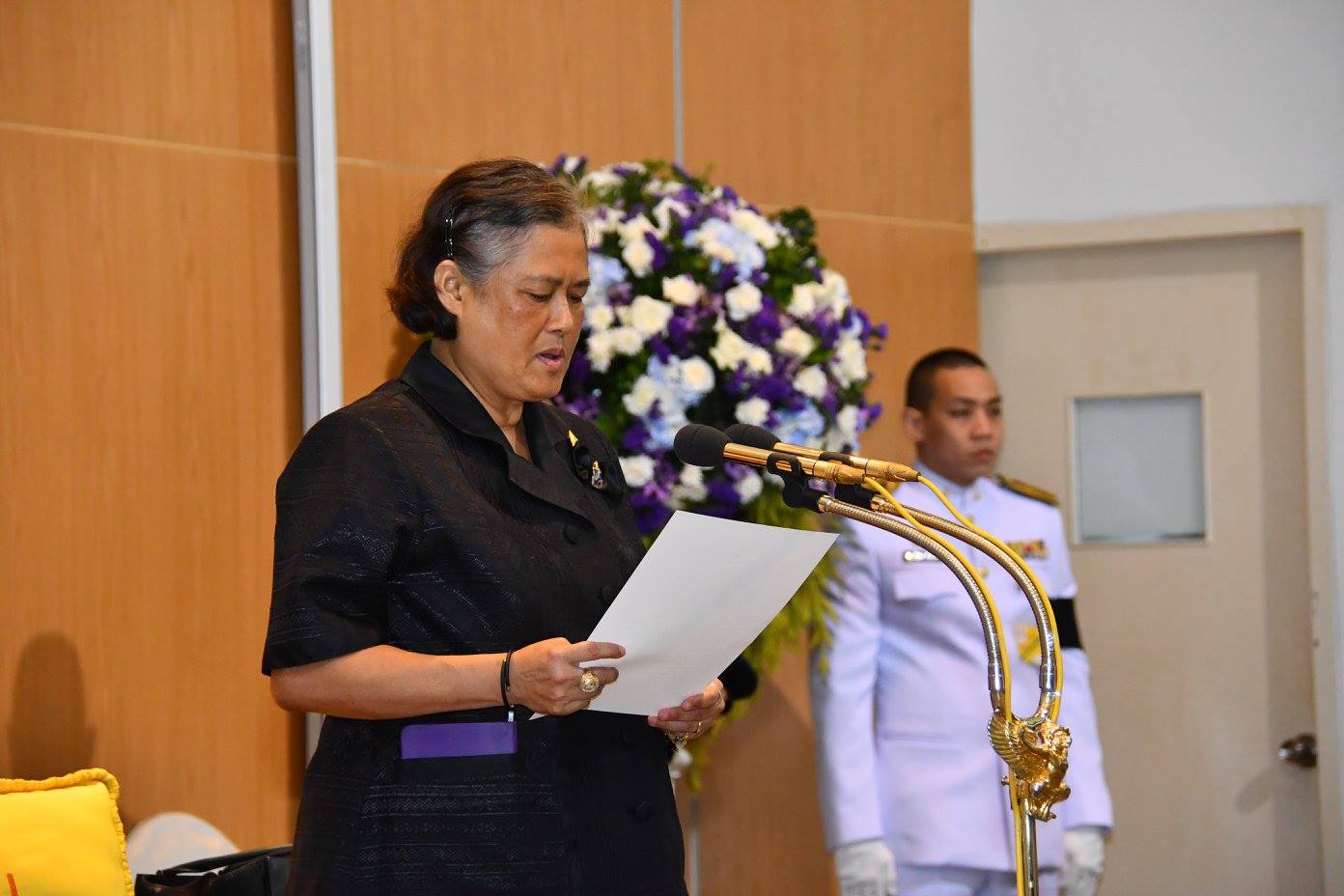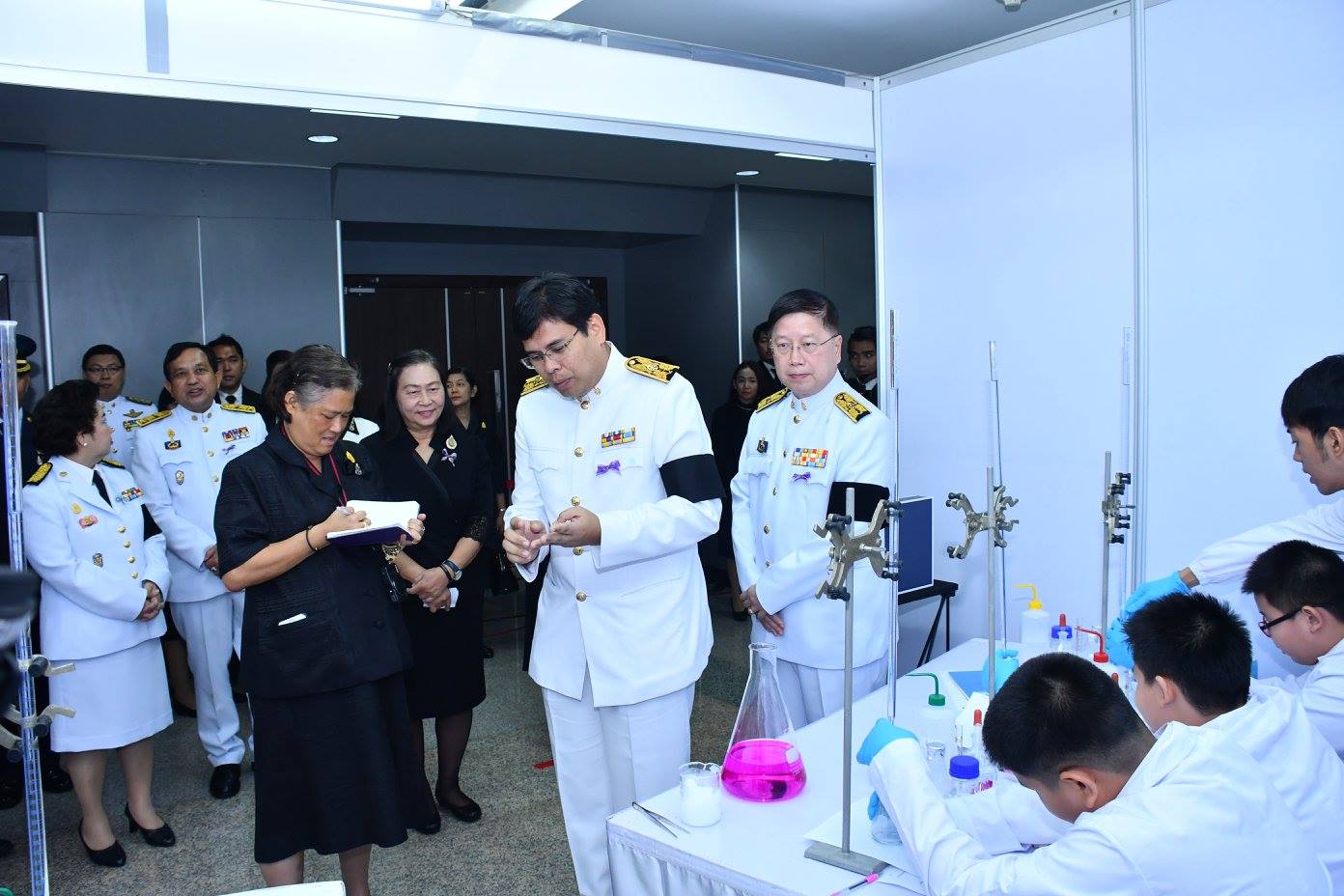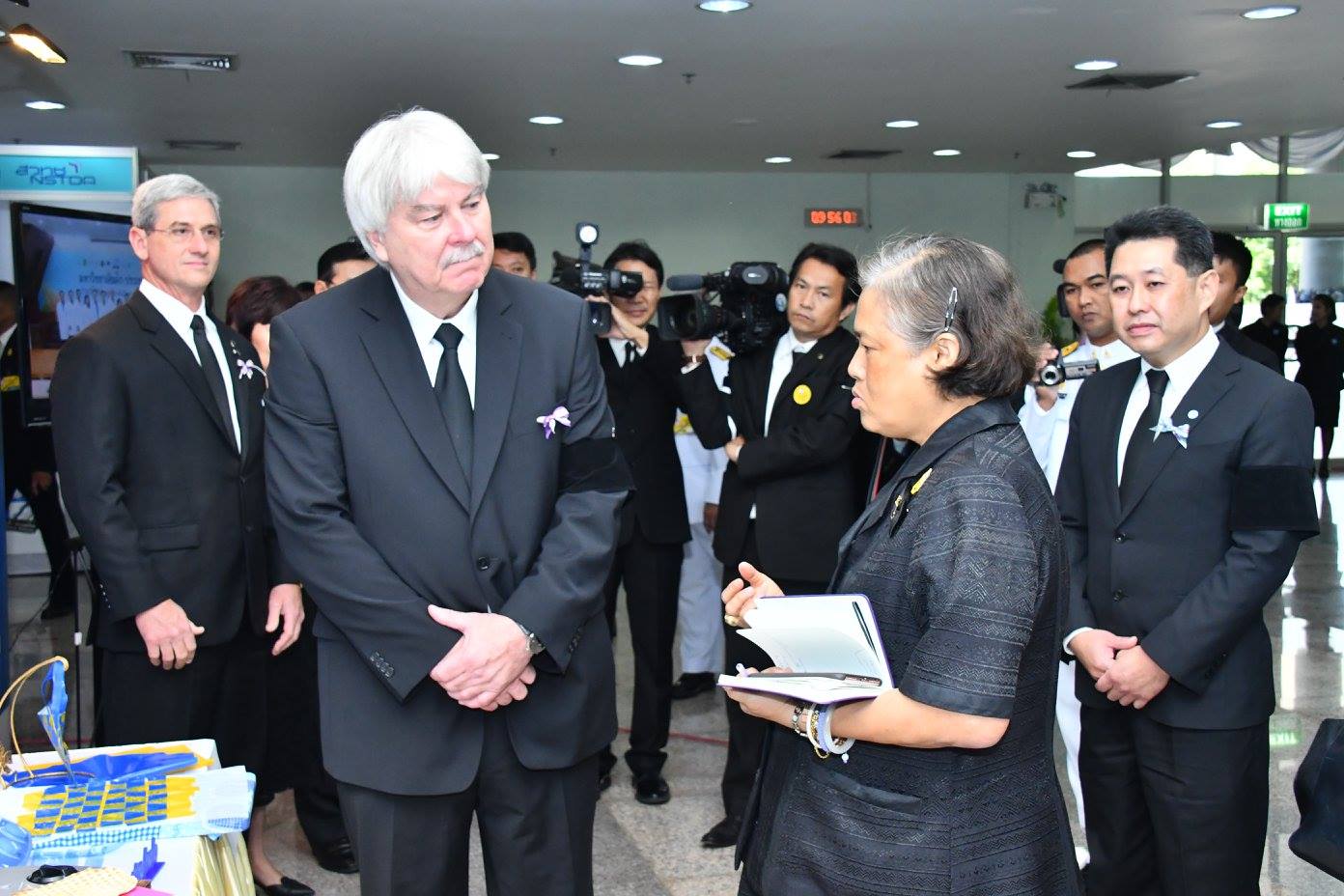NSTDA, IPTST, Chevron and Kenan Institute collaborate for a better future Her Royal Highness Princess Maha Chakri Sirindhorn attended a ceremony marking the fifth anniversary of the Thailand Children's University Project on Friday June 2 at Sirindhorn Science House, Science Park Thailand, Pathum Thani.

The Thailand Children's University Project was envisioned by Her Royal Highness to encourage primary-, secondary- and high-school students to become involved in science-learning activities. It is managed by the National Science and Technology Development Agency (NSTDA), the Ministry of Science and Technology and the Institute for the Promotion of Teaching Science and Technology, with support and participation from Chevron Thailand Exploration and Production and Kenan Institute Asia, along with a network of universities.
The project’s main objective is to create awareness of the importance of science studies and the development of science teaching. It aims to lay down long-term fundamental standards and to prepare for the production of greater numbers of scientists and technologists with crucial educational qualities.
Science and Technology Minister Atchaka Sibunruang reported to HRH Princess Maha Chakri Sirindhorn on the first five years of the pilot project, in which a network of eight universities organized teachers, researchers and mentors to act as consultants to generate interest and activities among school students. The mentors are university graduate students or candidates for doctoral degrees.
The Thailand Children's University was opened by HRH Princess Maha Chakri Sirindhorn at Sirindhorn Science House, Science Park Thailand, on October 30, 2012. In 2015, Chevron (Thailand) supported the project with funding of Bt17 million, and the project’s activities were expanded to all regions of the country to reach more young people. In 2016, the Children's University initiated the "Chevron Enjoy Science: Enjoy Science, Power of Thinking for the Future" program, with widespread public awareness and expansion of the supporting universities network to involve 10 more universities in the region.
The Thailand Children's University project now involves 21 organizations. A total of 63 science activities have been developed by local lecturers, researchers and academicians and more than 30,000 students are taking part. It is now an integral part of the Science and Technology Ministry’s main policy of supporting and promoting education in science, technology, engineering and mathematics – the so-called STEM subjects. These studies are seen as part of a cumulative (science) curriculum, the long-term aim of which is to prepare scientists and technicians of the future who can solve real-life problems and help to create a higher standard of living.
NSTDA President Dr. Narong Sirilertworakul presented to Her Royal Highness 22 representatives of Chevron Thailand Exploration and Production, the Kenan Institute Asia and NSTDA to receive Certificates of Honor from the Thailand Children's University project. The anniversary event also heard a special lecture on the topic "Learning in an Extracurricular Learning Center”, by Dr. Rudolf Herbers from Teutolab, Bielefeld University, Germany.
HRH Princess Maha Chakri Sirindhorn then opened an exhibition "The Five Years of the Thailand Children's University: To Cultivate Science Thinking among the Country’s Youth”, and examined some of the students' science experiments. These included an astonishing plant that can change color by separating its chlorophyll content, developed under the university’s new agriculture theory program. There was also a LED (light-emitting diode)-related invention and a camera using a periscope, among others.

"The Thailand Children's University project is NSTDA’s mission to develop human resources in science, technology and innovation,” Dr. Narong said. “This year the project will focus on creating the inspiration for senior primary-school and junior secondary-school students to learn science. The project will open opportunities for students to learn science outside the classroom and without textbooks; to encourage students to link science with their daily lives and give them the ability to apply their learning by creating useful innovations to benefit different dimensions of society. Their experimentation will be closely coached and advised by mentors who are researchers and experts.”
The Managing Director of Chevron Asia South, Mr. Brad Middleton, said his company gave priority support to learning activities, particularly for young people learning science, technology, engineering and mathematics (the STEM subjects) in order to develop the human resources that were a fundamental need for increasing secure and sustainable competitiveness in Thailand.

Its support for the Thailand Children's University project was a part of the "Chevron Enjoy Science: Enjoy Science, Power of Thinking for the Future” program, in which the company had joined both public- and private-sector partners to promote STEM-subject studies within the education system and outside the classroom. It is hoped that young people will realize that the STEM subjects are enjoyable and interesting, and this will inspire them to continue such studies in higher education and eventually to make careers based on science, technology, engineering and mathematics, he said.
The Chevron Enjoy Science Project is managed by the Kenan Institute Asia, whose President, Piyabutr Cholvijarn, said that in 2017, the Chevron project aimed to expand the activities of the Thailand Children's University to reach 6,000 more young people throughout the country. It also aims to train 50 lecturers, teachers and staff of educational institutes and partner organizations, giving them design capabilities and the ability to manage the learning activities of the Thailand Children's University project with increased efficiency.
The Fifth anniversary of the Thailand Children's University Project was celebrated on June 2 and 3, 2017, at Sirindhorn Science House, Science Park Thailand. The event included exhibitions of the experimental activities of 20 of the project’s students following the vision of HRH Princess Maha Chakra Sirindhorn under new agriculture theory. These included not only the previously mentioned color-changing plant, but also a simple water purifier invented by students. The event also included training for lecturers from the project’s network of universities on the topics of rice and environment. The Thailand Children’s University also published an activities handbook aimed at helping young people to enjoy and cultivate the learning of science.
To take part in the Thailand Children's University Project, please visit www.childrensuniversity.in.th or call 02-5647000, ext 77214. For more information, contact extensions 71731, 71727, 71725 or 1162.
PR Department
E-mail: This email address is being protected from spambots. You need JavaScript enabled to view it.
Facebook: NSTDA-สวทช.
